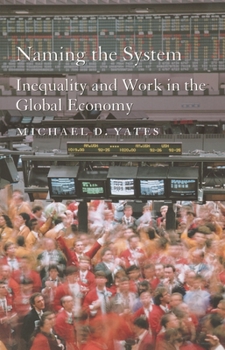Naming the System: Inequality and Work in the Global Economy
Select Format
Select Condition 
Book Overview
The economic boom of the 1990s created huge wealth for the bosses, but benefited workers hardly at all. At the same time, the bosses were able to take the political initiative and even the moral high ground, while workers were often divided against each other. This new book by leading labor analyst Michael D. Yates seeks to explain how this happened, and what can be done about it.
Essential to both tasks is "naming the system"--the system that ensures that those who do the work do not benefit from the wealth they produce. Yates draws on recent data to show that the growing inequality--globally, and within the United States--is a necessary consequence of capitalism, and not an unfortunate side-effect that can be remedied by technical measures. To defend working people against ongoing attacks--on their working conditions, their living standards, and their future and that of their children--and to challenge inequality, it is necessary to understand capitalism as a system and for labor to challenge the political dominance of capitalist interests.
Naming the System examines contemporary trends in employment and unemployment, in hours of work, and in the nature of jobs. It shows how working life is being reconfigured today, and how the effects of this are masked by mainstream economic theories. It uses numerous concrete examples to relate larger theoretical issues to everyday experience of the present-day economy. And it sets out the strategic options for organized labor in the current political context, in which the U.S.-led war on terrorism threatens to eclipse the anti-globalization movement.





